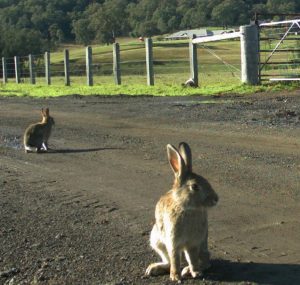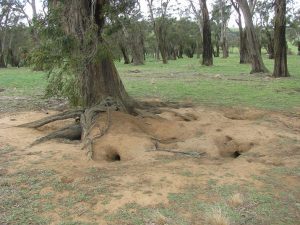
Wet conditions have forced the postponement of the planned release of the feral rabbit control program throughout South West Sydney until early 2019.
Led by Greater Sydney Local Land Services with the support of major landholders, local councils and environmental agencies, the program was to see the release of the rabbit haemorrhagic disease virus known as RHDV1-K5 earlier this month.
Local Land Services biosecurity manager Graham Wilson said the release had been delayed due to current weather conditions, rainfall and a high volume of rabbit kittens emerging in the area.
“Kittens six weeks or younger become immune to the RHDV1-K5 virus if exposed to it and ongoing wet conditions generally restrict the spread.
“We want this program to be as effective in reducing the prevalence of these pests and delaying the release is the best way to achieve that,” he said.
“We will now look to roll out the program in January 2019.”
Feral rabbits are believed to have contributed to the decline or extinction of a number of NSW native species including the greater bilby and the yellow footed rock-wallaby and their overgrazing is estimated to cost Australian agriculture more than $200 million every year.
Despite the delay, domestic rabbit owners are still encouraged to vaccinate their pets prior to the release. “The virus is spread mainly by contact between rabbits or via insects such as mosquitos and flies,’’ Mr Wilson said.

“Importantly, RHDV is only effective in rabbits and if pets are vaccinated they become immune.
“This program is designed to complement ongoing control efforts on private and public land,” he said.
“We encourage landholders experiencing issues with feral rabbits to continue working with us to roll out coordinated control campaigns in partnership with their neighbours wherever possible,” he said.
Mr Wilson said officers were currently investigating reports of recent dead rabbit sightings in the area despite the virus release not going ahead.
“These deaths are likely to be due to an existing or natural occurring virus already present in the region,” he said.
For further information contact Greater Sydney Local Land Services on 4724 2100.
